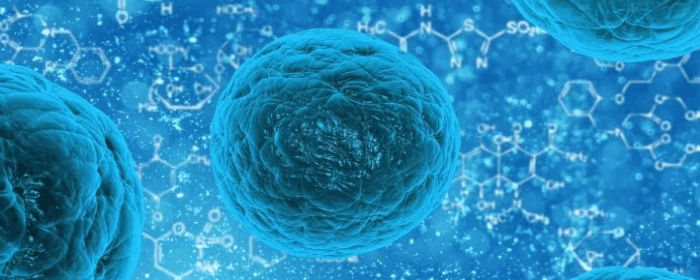Alzheimer’s disease is the most common form of dementia. Among other symptoms, Alzheimer’s disease causes memory loss as nerve cells in the brain become dysfunctional and die. While the disease is known to be related to the accumulation of β-amyloid plaques and neurofibrillary tangles, how and why those things happen is still a mystery. Nonetheless, researchers have created and tested drugs to change the way the brain process β-amyloid and hyperphosphorylated tau (the substance in neurofibrillary tangles) but nothing, so far, has worked in humans. Instead, we are left with anticholinergic drugs, and memantine used to slow the progression of the disease.
These failures of drug development have forced scientists to reconsider how to treat Alzheimer’s disease. Instead of a focus on neuropathology that we cannot understand or control, why not focus on supporting nerve cells that remain or even restore the nerve cells that are lost? This is the hope of stem cell research in Alzheimer’s disease, and the focus of an extensive review article on the subject.
The review article describes the clinical possibilities of different types of stem cells:
- Neural stem cells (NSCs)
- Mesenchymal stem cells (MSCs)
- Induced pluripotent stem cells (iPSCs)
Neural stem cells (NSCs)
NSCs have the magnificent ability to become any type of brain cell, be they neurons or various types of glia. NSCs would be the ideal stem cell treatment for Alzheimer’s disease except for one major problem: There are very, very few NSCs in the human brain. It is nearly impossible to harvest them in high enough numbers and, right now, we don’t have ideal ways to make them multiply and grow in a laboratory. So, while research in NSCs for the treatment of Alzheimer’s disease is well underway, they won’t be widely available any time soon.
Mesenchymal stem cells (MSCs)
Mesenchymal stem cells can become many different types of cells and can be harvested from many places including bone marrow, umbilical cord, and adipose (fat). MSCs are very versatile, and we are improving at safely using them in various diseases, including Alzheimer’s disease. MSCs are one of the more exciting avenues of research in Alzheimer’s disease and other neurodegenerative diseases.
Induced pluripotent stem cells (iPSCs)
iPSCs are a remarkably interesting type of stem cell. They are stem cells that are created by reprogramming cells found in the skin (fibroblasts) to become other cells of interest. Researchers take fibroblasts and genetically alter them to behave like other types of stem cells or fully differentiated cells. Recent work has shown that scientists can repurpose iPSCs to become neural precursor colonies, which are a lot like NSCs described above. If one could take iPSCs from the skin and convert them into NSCs, this could truly be a treatment for Alzheimer’s disease.
Stem cell treatments provide the promising potential to help those with Alzheimer’s disease and other neurodegenerative diseases. While research is ongoing, the breakthroughs that have been recently discovered provide hope to those seeking an alternative option.
Reference: Lee, J. H., Oh, I. H., & Lim, H. K. (2016). Stem Cell Therapy: A Prospective Treatment for Alzheimer’s Disease. Psychiatry Investigation, 13(6), 583–589. https://doi.org/10.4306/pi.2016.13.6.583


 St. Petersburg, Florida
St. Petersburg, Florida
